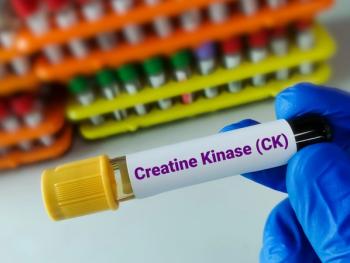
Inflammation an Under-Explored Topic in DMD Gene Therapy, Report Argues
In an opinion article, investigators argue that gene therapies may not achieve their full potential if the innate inflammation in Duchenne muscular dystrophy is not effectively managed.
Future trials of gene therapies for Duchenne muscular dystrophy (DMD) ought to better account for the role of inflammation in therapeutic efficacy, a new report argues. The article, which was
Corresponding author Samuel J. K. Abraham, M.D., Ph.D., of the University of Yamanashi School of Medicine, in Japan, and colleagues wrote that the role of inflammation in the pathogenesis of Duchenne muscular dystrophy has been well-documented. They said inflammation can accelerate disease progression and fibrosis via several mechanisms.
Yet, as gene therapies have become the focus of DMD drug development, Abraham and colleagues said the role of inflammation has been under-investigated. They noted that most DMD clinical trials typically use dystrophin expression levels and measures of muscle function as their main endpoints. Yet, Abraham and colleagues said gene therapies may not achieve their full potential if the innate inflammation in DMD is not effectively managed.
“The other aspect is the immunogenicity and inflammation induced by these gene therapies themselves, either because of the viral vector alone, i.e., AAV, or the gene component itself (dystrophin expression induced immunity), or both, making the inflammation manifold,” they wrote.
The authors noted that there are a number of strategies to address inflammation and perhaps improve the efficacy of gene therapies. Each has its own pros and cons, they said.
For instance, corticosteroids are a common method of treating inflammation and are commonly used to slow disease progression, but they also come with side effects such as weight gain and osteoporosis. Non-steroidal anti-inflammatory drugs (NSAIDs) can reduce inflammation, but existing data suggest they have limited benefits in a DMD setting, and they also have their own potential side effects. A number of novel therapeutic strategies are also under investigation, targeting transient receptor potential channels and NOX, among others, the authors said.
One newer option is the use of immunosuppressive multipotent mesenchymal stromal cells (MSC) to mitigate inflammation. Early data support the feasibility of the approach, but larger trials are needed, Abraham and colleagues said, in part to see if MSCs can survive long enough in vivo to achieve their goal.
Instead, Abraham and colleagues suggest the use of a specific black yeast, Aureobasidium pullulans, which produces beta-glucan and could be used as an adjuvant therapy. In previous studies, including human trials, this therapy was found to reduce plasma biomarkers of inflammation.
“Further, in mdx mice, this beta-glucan has also been shown to increase skeletal muscle regeneration markers: plasma IGF-1, dystrophin, MYH3 and CD44 apart from increasing CD68 macrophage infiltration that has the ability to clear necrotic muscle,” they wrote.
Abraham and colleagues added that some gene therapies have been reported to have hepatic toxicity, and this beta-glucan has been found to have beneficial impacts in animal models of non-alcoholic steatohepatitis (NASH).
The investigators said the first step toward implementing their suggestion would be to do comparative studies using different anti-inflammatory approaches alongside gene therapies. They said future DMD studies should look at both inherent and treatment-induced immune responses in the control and treatment cohorts.
“While anti-inflammatory adjuvants along with gene therapy may have their own shortfalls, at least evaluation of the inflammatory biomarkers would give some insight into whether such inflammation has primarily negatively impacted the outcome,” they wrote.
Newsletter
Get the latest industry news, event updates, and more from Managed healthcare Executive.























